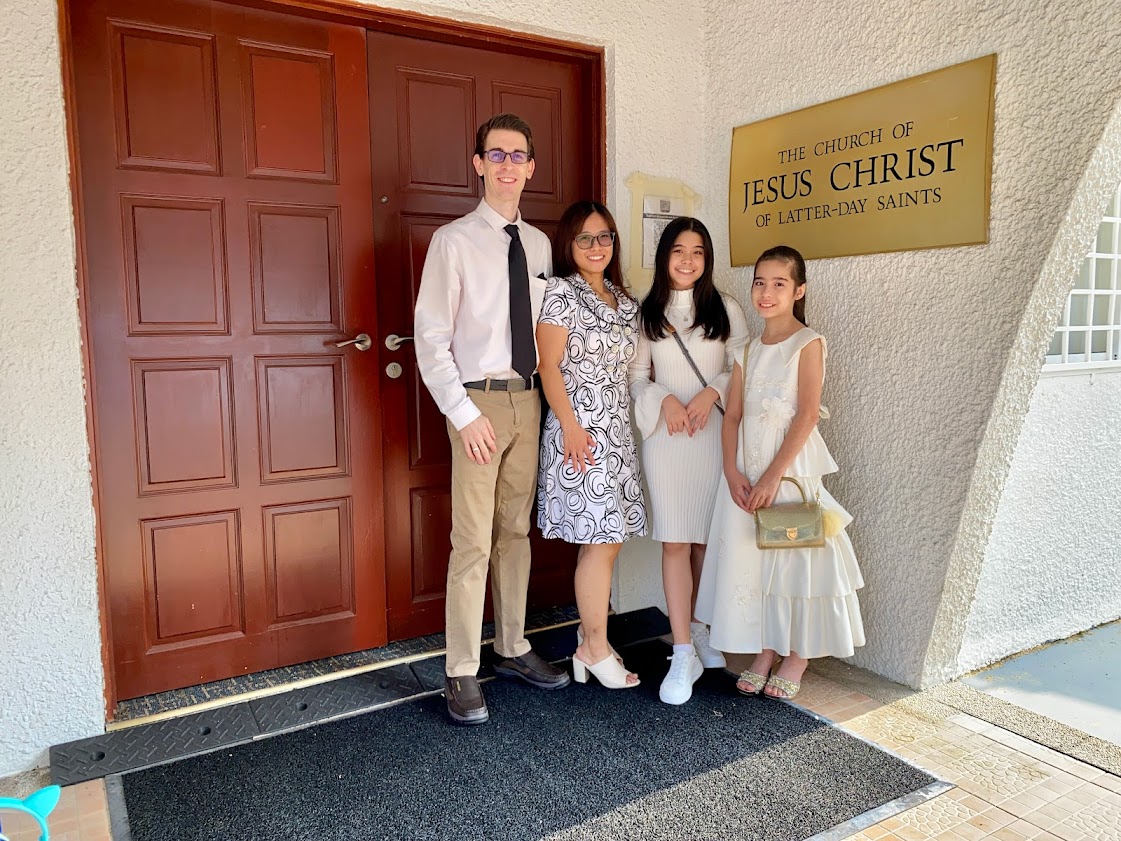This is one post in an A-Z series of 26 where I am writing about living as a Mormon in the wilderness of Kuantan
The word 'Mormon' is inextricably linked with The Church of Jesus Christ of Latter-day Saints. It always has been and always will be.
Of course, the beginnings of Mormonism and why it is referred to as such, are rooted in the appearance of the Book of Mormon, touted by Joseph Smith as an additional book of scripture. He found the record buried in the ground and translated it first using instruments provided with the record, and second with a gemstone he previously discovered in a mine.
 |
| Joseph Smith's seer stone which he found in a mine and later used in the translation process of the Book of Mormon |
 |
| An artist's depiction of Joseph Smith translating the Book of Mormon record by using a seer stone in a hat which revealed characters followed by their translation in English |
It's an incredible set of circumstances and claims, which incidentally, I have spent 14 years seriously studying and believe to be entirely factual.
But you can imagine the wild excitement at the time the Book of Mormon seemed to pop out of nowhere. People believing in the Book quickly began to be called 'Mormons' in a derogatory fashion. So for those on the outside, we became known as Mormons and the Mormon Church and our theology became known as Mormonism.
In more recent times, the church appears to have taken on the stance, "if you can't beat them, join them," and now embraces to an extent the name 'Mormon' when describing the church and its members. It now also helps in quickly identifying who we are, which is more difficult when using the real name, 'The Church of Jesus Christ of Latter-day Saints.'
Regardless of the process by which the Book of Mormon was translated, and how valid or scandalous one may view it, the proof is in the pudding, so to say.
Now, I have traipsed through the quagmire of etymology surrounding the word 'Mormon' including the oft-quoted, perhaps satirical and metaphorical explanation given by Joseph Smith/W.W.Phelps that "Mormon means more good." Mr. Smith was probably trying to portray to his detractors that if the Bible means good, then the Book of Mormon means more good, referring to the more correct translation of the latter.
Mormons who believe that the word literally translates to 'more good' are almost conclusively in error. To break up Mormon as mor- (from English 'more') and -mon (from Egyptian 'good') is impossible as the Nephite people in the Book of Mormon never knew English as the language didn't even exist then. So there is no way that mor- could be derived from the English 'more.' Gordon B. Hinckley, 14th President of the church, commented that Mormon means more good is simply a nice motto for church members to use as they wish.
Studies of Egyptian, Hebrew and Arabic have drawn some possibilities of the root MRM or MRMN as translating to 'good,' 'beautiful,' or 'everlasting love' (Though do take into account that the Prophet-Historian Mormon did compile the Book of Mormon record in Reformed Egyptian).
Which leaves us stuck with an etymological puzzle of Mormon.
Mormon, one of the last of the Nephite people in the record, was named after his father Mormon, who in turn most likely got his name from the land of Mormon, which signifies the first usage of the word, around 146BC.
In Mosiah 18 we read of this land called Mormon. It was a well-loved place, a place of trees and fountains, obviously very scenic. It was also a place where gospel covenants were administered and received, where spiritual convictions were realised, and where the beginnings of a church of Christ were formed.
The word Mormon is repeated almost a dozen times in Mosiah 18 and six times in verse 30 alone.
Malaysia is my Mormon.
My missionary service was filled with administering and receiving gospel covenants on a regular basis in Malaysia. I lived the gospel with great devotion in Malaysia. Malaysia was a place where I received intense spiritual convictions. I also helped to lay the foundations for a branch of the church to later spring up in Sitiawan, Malaysia.
Malaysia is my Mormon.
 |
| Here I am (centre) preparing to administer the gospel covenant of baptism to a consenting candidate, accompanied by other missionaries in Ipoh, Malaysia, 2004 |
Where is your 'Mormon'? Why is it special to you?


















